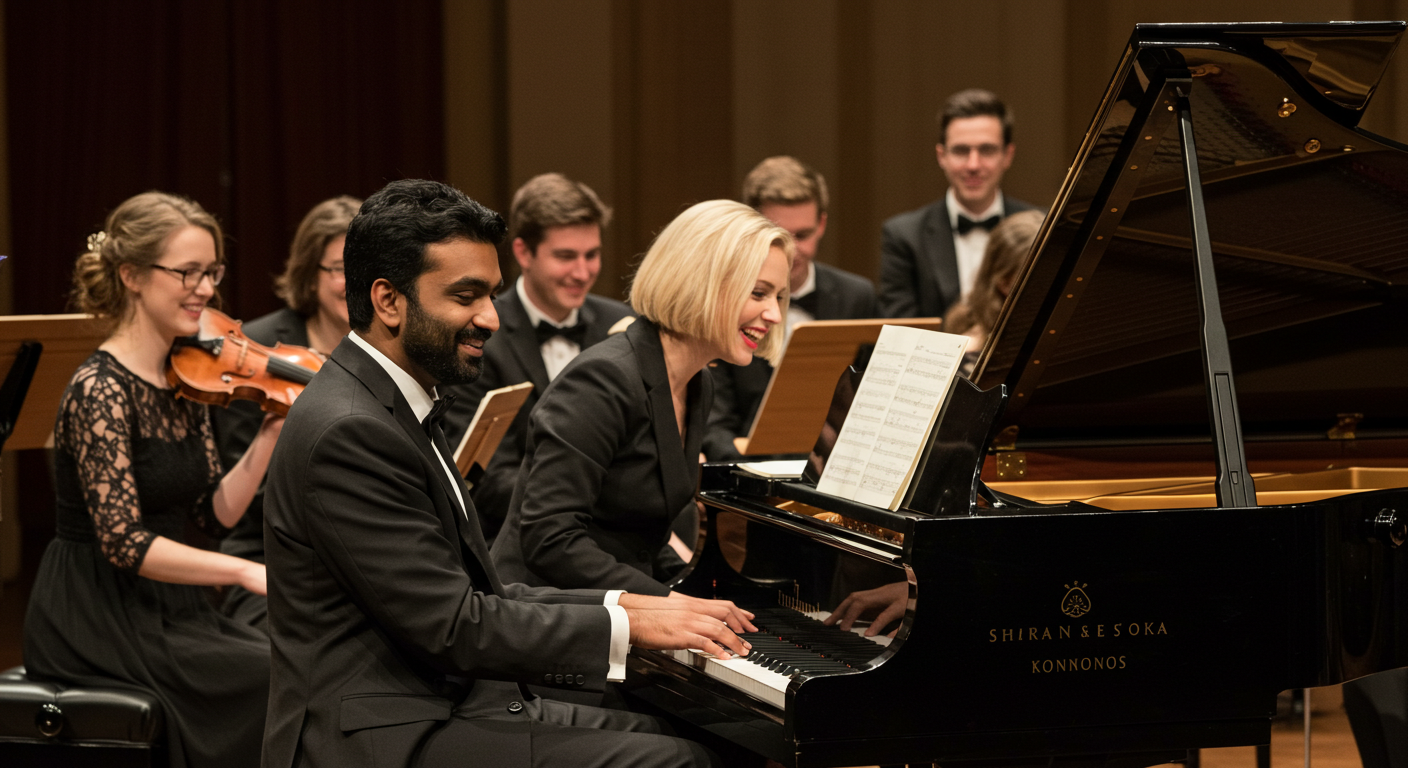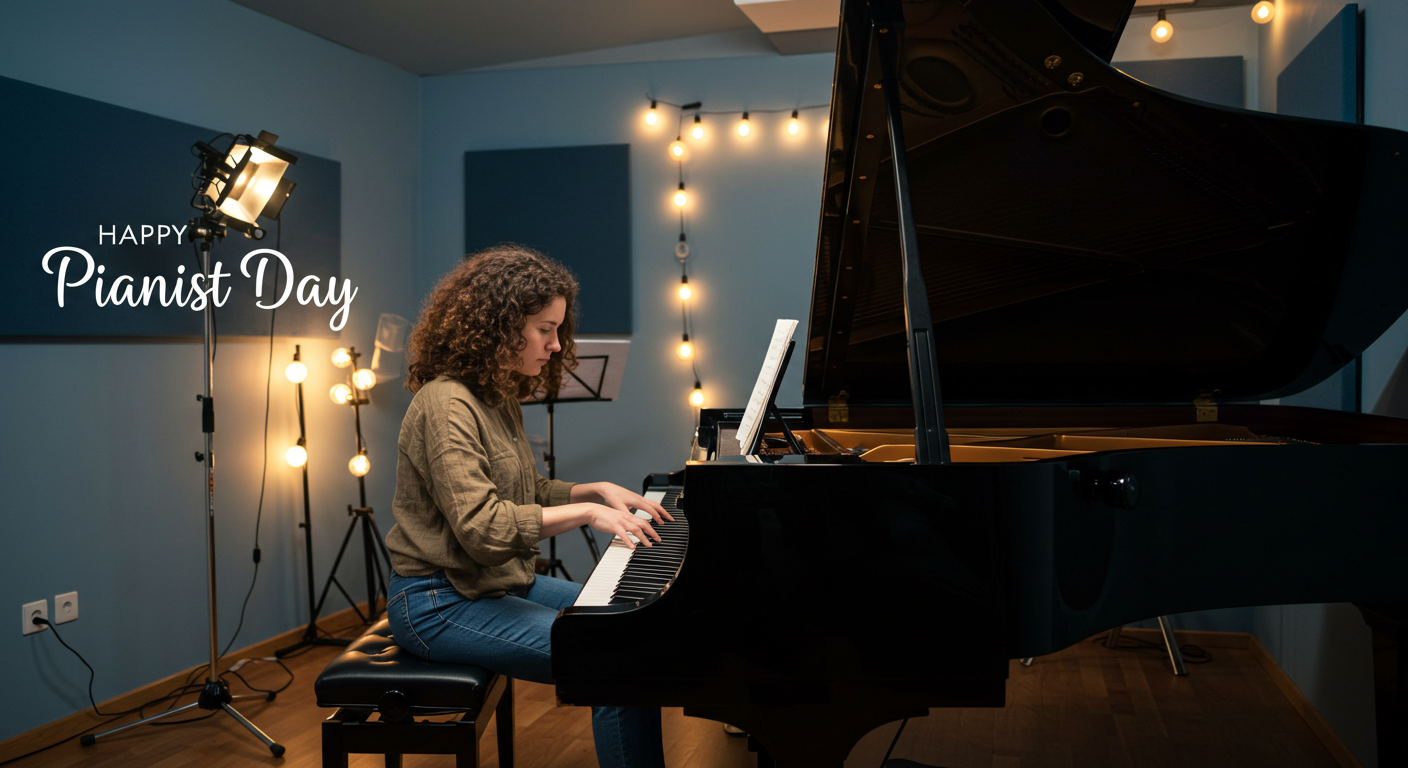From Zero to Chopin: How Adults Are Learning Piano Later in Life

“I wish I’d started earlier.”
Ask any adult beginner sitting at a piano for the first time in years — or decades — and that’s usually the first thing they’ll say. But here’s the truth: more and more adults are proving that it’s never too late to learn the piano, whether they’re 30, 50, or 70. In fact, adult beginners are becoming one of the fastest-growing groups in piano education.
And they’re not just learning scales. They’re learning Beethoven. Debussy. Even Chopin.
The Rise of the Late Bloomer Pianist
There’s been a noticeable shift over the last few years. With better access to online lessons, mobile learning apps, and affordable digital pianos, people who always wanted to play are finally giving themselves permission to try.
Some are rediscovering a childhood hobby. Others are starting from scratch. Many say it’s about reclaiming time — especially in a world where mindfulness, stress relief, and creativity are more valuable than ever.
It’s not about impressing an audience. It’s about expressing something personal.
Why Adults Make Great Learners
Children may have an edge in flexibility and early exposure, but adult learners bring something powerful to the table: perspective. They tend to be more focused, more self-aware, and deeply motivated by personal goals.
Here’s what adults bring to the bench:
- Life has taught them how to stick with things, even when progress is slow.
- Adults connect more personally with the music they choose.
- They often have a clear “why,” which helps them keep going.
- They savor even the small wins — a clean scale, a piece memorized, a successful duet with a friend.
Yes, adults may need to work harder on coordination or unlearn perfectionism, but they come with the patience and maturity to manage it.
Real Progress, Real Stories
Some of the most inspiring musicians in local communities are people who didn’t touch a piano until their 40s or 50s. One woman in Argentina picked up the piano in her 60s to fulfill a lifelong dream — and within three years, she was playing Chopin preludes for her family. Another man in Berlin, retired from a career in finance, now records his own interpretations of jazz standards from his home studio.
You’ll even find adult learners featured in events tied to Pianist Day, the international celebration that honors pianists of all levels and backgrounds. Many events worldwide include adult student recitals, open mic nights, and tributes to piano teachers — proving it’s not about how long you’ve played, but why you play.
How to Start Learning Piano as an Adult
Starting as an adult doesn’t have to be overwhelming. In fact, many adult beginners succeed because they keep it simple and practical. Here are a few tips for getting started:
- Choose the right instrument: A digital piano with weighted keys is a great place to begin if space or budget is tight.
- Find the right teacher: Whether it’s online lessons, local instructors, or structured courses, pick a style that fits your goals and availability.
- Start small: Don’t aim for Rachmaninoff on day one. Learn simple melodies and build gradually.
- Be consistent: Practice for 15–30 minutes a day. Progress comes from routine, not perfection.
- Stay connected: Join an online forum, attend workshops, or participate in musical events like Pianist Day to stay inspired.
From First Notes to First Chopin
You might not jump into a Chopin Nocturne in your first month. But with consistent practice, many adult learners find themselves playing expressive, intermediate-level pieces within one or two years. And from there, the door opens wider — to Chopin, Debussy, Satie, and beyond.
Progress doesn’t follow a strict timeline. Some pieces take weeks; others take months. But with each new measure, you’re not just learning notes. You’re shaping a new identity — one where music is part of your daily rhythm.
It’s Never Too Late to Begin
There’s no deadline on becoming a pianist. If anything, adults bring the depth, focus, and intention that many young learners haven’t found yet. Whether you’re just getting started or picking it up after years away, the piano is waiting — no judgment, no pressure, just 88 keys and endless possibility.
So maybe you won’t headline Carnegie Hall. But you just might fill your living room with music you love — and that’s more than enough.
If you're looking for a reason to start, remember: every November 8, the world comes together for Pianist Day — a celebration for anyone who dares to sit down, play, and say: This is for me.
Related news (no lang!)
You Might Also Like (no lang!):
Do you want your name to be included on the world Pianist Day website and remain there forever?
CONTACT US!
Filll the form for creating your own events and stories! Also you can send us the info to our email info@pianistday.com, or directly to Instagram (it's more convenient and easier) so we can tell the world about them.








